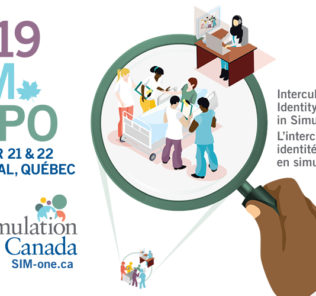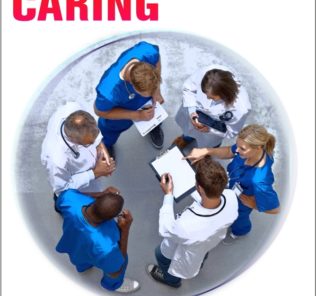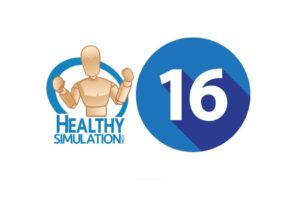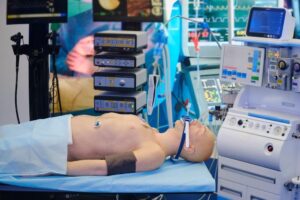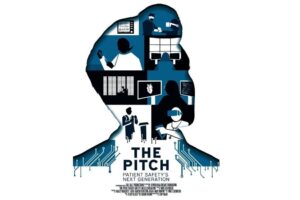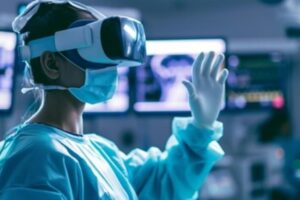How to Influence and Improve Organizational Culture with Healthcare Simulation
Clinical simulation can impact workplace culture in Healthcare. The culture in many healthcare workplaces may be strained, with workers experiencing compassion fatigue and burnout. Since the 2020 Covid19 pandemic, there has been an increased strain on healthcare workers’ wellness, which is amplified by workplace staff shortfalls. This HealthySimulation.com article by Erin Carn-Bennett will explore how healthcare simulation can and is used in some environments to influence and improve workplace culture in healthcare.
In 2022 the World Health Organization (WHO) reported the burnout rates of healthcare workers internationally were 41-52% in pooled estimates. The WHO also reports that by 2030 there will be an estimated workforce shortfall internationally for healthcare of 10 million workers. The shortfall will affect mostly those in low to low-mid-income countries. However, all countries face challenges in the variance of employment, education, deployment, and retention of healthcare staff.
Triandis (2007) states that culture has three main characteristics:
Sponsored Content:
- Culture emerges in interactions between humans and environments
- Culture consists of shared elements
- Culture is transmitted across time periods and generations
So, how does culture apply to clinical simulation, and how can simulated experiences help the workplace culture? Healthcare simulation is an educational modality that can be designed to influence and improve workplace culture, among many other benefits. In clinical simulation, participants are guided by facilitators to participate in high-risk clinical activities as a team in a safe space without risk to patients. Participants can role play and have experiential learning opportunities to practice coping and communication strategies to improve workplace culture. Because clinical simulation education incorporates a psychologically safe environment, the participants can participate in the debriefing with genuine curiosity to learn.
Through the process of clinical simulation and a psychologically safe debrief, behaviors related to workplace culture can be explored and influenced to translate into a change in clinical practice. Clinical simulation educators are often considered role models in empathy, emotional intelligence, and communication and leadership skills. These skills can be absorbed by participants that attend clinical simulation scenarios and translated into improved workplace cultures and psychological safety.
View the HealthySimulation.com LEARN CE/CME Platform Webinar Debriefing Psychologically Stressful Simulations: A Different Perspective to learn more!
The issues within healthcare workforces, particularly staffing levels and staff retention, are substantial and should not be underestimated. There are no quick or easy fixes to the issue. However, these challenges should not put off anyone starting or continuing to influence improved culture via healthcare simulation as an educational modality.
Sponsored Content:
Clinical simulation educators can influence changes in workplace cultures through the utilization of clinical simulation as a modality to emphasize and demonstrate the embodiment of psychological safety in all elements of education. Clinical simulation educators need to not place pressure on themselves to influence everyone in the room but potentially only one person at a time. This can appear as a more achievable goal. If simulation services can influence one participant to improve workplace culture through the experience of and demonstration of psychological safety, then a ripple effect can occur throughout organizations.
Clinical simulation scenarios and debriefing are opportunities for healthcare staff to spend time in reflection on human-to-human connections. Mindset shifts can be prompted by staff that attend clinical simulation education to listen to other participants’ points of view. This can allow individuals to reflect on actions performed in clinical simulation and to realize their own assumptions and bias of others on their teams. To witness others in vulnerability in the debrief circle may also improve relationships between staff members for some participants.
Empathetic leadership and self-compassion are current topics of interest around idealistic leadership and wellness. To be an empathetic leader means to discuss and display empathy, teach and display listening skills, cultivate compassion, and genuine perspective-taking. Idealistically, these skills are used by all leaders.
As a workforce, many healthcare leaders have burnout. Therefore the practice of empathetic leadership may be hard to practice for a variety of complex reasons. Shame, blame, and manipulation will not inspire leaders to change and influence culture though. Through clinical simulation, the influence of one staff member at a time is still hugely impactful. When individuals are ready to learn, mindset shifts can occur, to influence change at all stages and levels of practice.
A survey questionnaire of staff prior to participation in clinical simulation scenarios can help staff to feel more involved and heard in decisions around education priorities. Get buy-in from leadership around clinical simulation-based education prioritizations and outcomes that will be explored in clinical simulation. Encourage leadership to be clear in expectations, goals, and values with staff and share these with the clinical simulation team.
Clinical simulation is a space for staff to inspire one another, improve and hone their communication skills under pressure, and build their teams and culture from positive and reflective experiences. Clinical simulation is an ideal space for staff to explore these opportunities for personal and professional development.
Ensure that evaluations capture as much clinical simulation activity as possible. The data captured should be anonymous and de-identified. Data can then be used to create reports post-course to consider any alterations the clinical simulation team can make to improve experiences for participants and obtain feedback on any safety threats to team leadership. Resource-related issues around stock and other issues can also be included in the feedback so long as psychological safety is maintained.
Guest debriefers from another area in the hospital can be incredibly useful in any clinical simulation scenario. Although guest debriefing may be considered a risk if the faculty member does not have a background in the clinical area, this may actually be of great strength. A local expert should always be in partnership with a guest debriefer to answer on behalf of any questions about the clinical area.
A guest debriefer is more genuinely curious as a debriefer as there is often not a pre-existing relationship with the area. This may be of assistance for the debriefing of more complex cultural and communication issues in the debrief. Interdepartmental clinical simulations can also be incredibly powerful for many of the same reasons. Interdepartmental clinical simulations allow multiple teams to practice scenarios and grow relationships.
This HealthSimulation.com article has discussed how to influence and improve culture with clinical simulation as a modality. The international healthcare workforce is under increased pressure with workforce shortages and high levels of staff burnout. These are incredibly complex issues with no easy answer currently. However, clinical simulation is a powerful educational modality that can be used for far more than just for clinical skills.
Learn More About Organizational Culture and Healthcare Simulation!
References:
- Triandis HC. Culture and psychology: A history of the study of their relationships. In: Kitayana S, Cohen D, editors. Handbook of Cultural Psychology. New York: Guildford Press; 2007. pp. 59–76
Erin Carn-Bennett is a Simulation Nurse Educator for the Douglas Starship Simulation Programme in Auckland, New Zealand. Carn-Bennett has her Masters of Nursing and has an extensive nursing career within pediatric emergency and also nursing management. She is passionate about debriefing and all things simulation. Carn-Bennett is a member of the IPSS board of directors. Carn-Bennett is the lead host of the podcast Sim Nurse NZ.
Sponsored Content:





